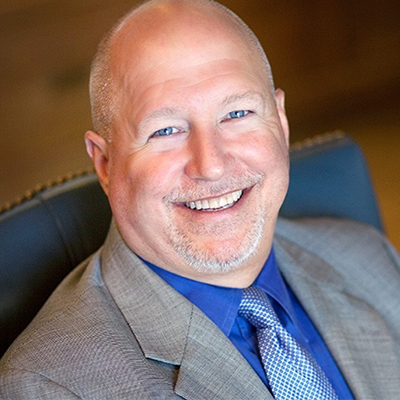The Great Place to Work Institute publishes an annual list of the “100 Best Places to Work.” This year, 20 of the companies on the list are in the “Professional Services Firms” category. And of these, five are law firms. This is the first time that law firms have represented fully a quarter of those spots, and from my conversations with law firm leaders, this is a trend that will only accelerate.
It’s smart business to transform your law firm from a mere conventional law practice to a great law firm in which to work. Benefits of doing so include:
- Attracting and retaining millennials
- Increasing their competitive advantage over peer firms
- Counteracting some of the deleterious effects of rapid change
- Building loyalty
- Improving client service and satisfaction
- Strengthening the firm’s brand
- Attracting laterals (and reducing the cost to acquire laterals)
- Reducing burnout
- Lengthening associate tenure
- Improving profitability
When you transform your firm into a great place to work, the psychological engagement of your people soars. And engagement is the attitudinal gold standard that leads to higher productivity, increased profitability, higher work satisfaction, longer tenure, and increased “good-mouthing” (as opposed to “bad-mouthing”) of the workplace.
So what are the things that a law firm leader can do that really matter in creating a great place to work? Here’s my Top 8 list, based on the latest research:
1. Clear Goals and Roles
In a world of rapid change, the increasing uncertainty can disrupt high performance in an organization. One proven antidote is to continuously make an effort to reduce uncertainty, to provide clarity to your people. This includes letting people know very clearly what’s expected of them – What do you expect of partners? What does an associate have to do to advance? What are the job expectations of staff? It also includes having clear values that are vigilantly adhered to. It’s especially important that your leaders “walk the talk” here. And role clarity is equally important – who’s in charge, and what exactly are their responsibilities. Try to avoid co-leadership if you possibly can – it creates more uncertainty that often is not offset by the minimal benefits it offers.
2. A Development Mind-Set
Research shows that when employees feel a sense of mastery, i.e., competence in a particular skill, they become more engaged. This is especially true for associates who are learning their craft. The key here is that in addition to teaching the mechanics of good lawyering, it’s even more important to focus on developing the individual. Development is about attitude, and attitude matters greatly. When a lawyer or a staff person gets the sense that their mentor is taking a genuine interest in helping them to develop their skills and master their craft – that “my mentor really cares about my becoming an excellent practitioner” – engagement levels soar.
3. Autonomy
Human beings have a need to feel a sense of autonomy – not just the idea that “no one is telling me what to do,” but more importantly, the idea that “I am being given the freedom to be my true self, my best self, in this environment.” For lawyers, this type of autonomy – often called “self-determination” in the research literature – matters hugely. To build engagement among the ranks of your professional staff, first, avoid micromanaging, even if you can rationalize 16 reasons why you need to do it. Second, adopt a nonjudgmental attitude that communicates that you encourage the uniqueness of the individual to shine through. It’s fine to set demanding expectations about the outcome you want an associate to achieve, but relax your vigilance about how exactly they arrive at that outcome.
4. Social Connection
This is the single most important element – not just in producing engagement, but for all kinds of thriving (life satisfaction, work satisfaction, relationship satisfaction). The research shows that regular doses of authentic positive connections with others not only lead to high levels of engagement, but also have a beneficial impact on health, cognitive focus, mood, collaboration, and a range of other desired behaviors. Many lawyers are uncomfortable talking about relationships, connections, or intimacy, seeing it as touchy-feely and irrelevant. My data on the lawyer personality explains this discomfort to a great extent. But it’s important to note that just because these topics make them uncomfortable doesn’t mean that they don’t need human connection. They do, and when you can facilitate more of it in your firm, it has very beneficial effects. This doesn’t mean that you need to have group hugs or start singing “Kumbayah” every morning. It does mean that removing barriers to social interaction, creating natural gathering places, and encouraging face-to-face communication are all interventions that will lead to increased engagement.
5. Meaning
Few practices hold the power of creating meaning in one’s work. When you experience meaning in your work, it can lead to feelings of pride and significance. This doesn’t mean that your firm can’t represent financial institutions, or that every client transaction must lead to a spiritual awakening. It doesn’t even mean that your work has to help those less fortunate than you. At its simplest, this need is satisfied when a lawyer sees that words she/he drafted actually end up in the final document, or when a supervising lawyer says “nice job,” or “thanks, this helps check off one important element for this deal.” In other words, the idea that something that I did was useful to someone else, that it mattered, is what’s important. If, in addition, it also leads to good works in the world, that’s a plus, but it doesn’t seem to be indispensable to see a bump-up in engagement.
6. Gratitude
The research on gratitude is also quite compelling. Studies (see, e.g., Robert Emmons’ books Thanks! and Gratitude Works!) have shown that regular use of gratitude leads to:
- A reduction in physical symptoms (fewer colds, headaches, plus lower levels of biomarkers for inflammation)
- Reports of greater life satisfaction
- More optimism about the coming week
- Higher states of alertness, attentiveness, determination and energy, and reports of sustained better moods
- Fewer absences
- More helpful behavior toward others
- Reports of fewer hassles in peoples’ lives
- Better quality of sleep
- An increased feeling of being connected to others
- Higher productivity
Gratitude is the opposite of entitlement. It connotes a sense of thankfulness for something good that was unexpected or to which you were not necessarily entitled. Workplaces in which a culture of gratitude is cultivated report greater collegiality, higher productivity, and less turnover. In his book Positive Leadership, Prof. Kim Cameron, at the University of Michigan, details some of the positive consequences in those companies that have cultivated a culture of gratitude.
In 2006, the chair of Sullivan & Cromwell implemented a policy encouraging partners to say “please” and “thank you” to the firm’s associates, and many articles since have detailed the remarkable improvement in the daily work climate and the increase in associate retention since that simple intervention. The cost to implement: $0.00.
7. Strength
As lawyers, we’re trained to spot problems. We tend to carry this mind-set over to the review process. Annual reviews in most law firms concentrate primarily on reporting deficiencies that need to be repaired. Years of research reveal that a 75/25 focus on strengths is the optimum proportion for high engagement and morale. Note that this ratio does not mean eliminating feedback about deficiencies – far from it. People need to know what they need to improve. And, they need even more encouragement to capitalize on the things they are good at. The Gallup organization has identified 12 “predictor” questions that strongly predict high levels of engagement in the workplace. The third most powerful predictor is this question: “Do you have an opportunity to do what you do best every day?” Research by Martin Seligman and his colleagues at the University of Pennsylvania has shown that people who get to use their strengths in creative new ways have less depressive thinking and greater work satisfaction. There are hundreds of similar studies showing that when a person concentrates on getting even better at his/her strengths (i.e., “leveraging” those strengths), the result is genuine increases in life satisfaction and a whole host of associated positive improvements, both attitudinal and behavioral.
8. Fairness
Finally, research by Sirota Consulting and others has shown that people want to be treated fairly, and while fairness doesn’t “cause” engagement, the perception that one has been unfairly treated can definitely destroy engagement. Wise law firm leaders will be particularly attentive to how their policy decisions are perceived in terms of fairness – as seen through the eyes of those who are affected by the policy decisions.
Most of these principles and practices are not very complicated, cost very little or nothing to implement, and are relatively easy to do. What makes them challenging is that all of them can easily be seen as “touchy-feely” (and thus discredited) by hard-edged, skeptical lawyers. Fifteen years ago, we had very little hard data about any of these practices, so one could hardly blame the eyeball-rollers. But in the past 15 years, an explosion of high-quality, methodologically sound scientific research has produced all of these findings I’ve reported on.
The broad sweep of this research tells us that treating employees with dignity, and adopting a mind-set of wanting to genuinely help them to thrive, helping them to connect with others in authentic ways, and bringing out the best in people – despite our problem-focused training – is the secret formula to creating a great place to work.
# # #
About the Author

Dr. Larry Richard is the founder and principal consultant at LawyerBrain LLC, a consultancy specializing in improving the practice of law using personality science. Dr. Richard practiced law for 10 years before earning a Ph.D. in organizational psychology. For the past 20-plus years, he has helped the leaders of AmLaw 100 firms improve leadership, manage change, build collaboration and employee engagement, and select and develop talent. He can be reached at drlarryrichard@lawyerbrain.com



















